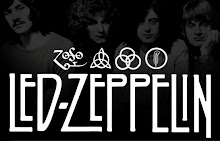Burlesque
Poetry that treats a serious subject as humor.
Canzone
Medieval Italian lyric style poetry with five or six stanzas and a shorter ending stanza.
Carpe diem
Latin expression that means 'seize the day.' Carpe diem poems have a theme of living for today.
Cinquain
Poetry with five lines. Line 1 has one word (the title). Line 2 has two words that describe the title. Line 3 has three words that tell the action. Line 4 has four words that express the feeling, and line 5 has one word which recalls the title.
Classicism
Poetry which holds the principles and ideals of beauty that are characteristic of Greek and Roman art, architecture, and literature.
Couplet
A couplet has rhyming stanzas made up of two lines.
Dramatic monologue
A type of poem which is spoken to a listener. The speaker addresses a specific topic while the listener unwittingly reveals details about him/herself.
Elegy
A sad and thoughtful poem about the death of an individual.
Epic
An extensive, serious poem that tells the story about a heroic figure.
Epigram
A very short, ironic and witty poem usually written as a brief couplet or quatrain. The term is derived from the Greek epigramma meaning inscription.
Epitaph
A commemorative inscription on a tomb or mortuary monument written to praise the deceased.
Epithalamium (Epithalamion)
A poem written in honor of the bride and groom.
Free verse (vers libre)
Poetry written in either rhyme or unrhymed lines that have no set fixed metrical pattern.
Ghazal
A short lyrical poem that arose in Urdu. It is between 5 and 15 couplets long. Each couplet contains its own poetic thought but is linked in rhyme that is established in the first couplet and continued in the second line of each pair. The lines of each couplet are equal in length. Themes are usually connected to love and romance. The closing signature often includes the poet's name or allusion to it.
Haiku
A Japanese poem composed of three unrhymed lines of five, seven, and five syllables, usually about some form of nature.
Horatian ode
Short lyric poem written in two or four-line stanzas, each with its the same metrical pattern, often addressed to a friend and deal with friendship, love and the practice of poetry. It is named after its creator, Horace.
Iambic pentameter
One short syllabel followed by one long one five sets in a row. Example: la-LAH la-LAH la-LAH la-LAH la-LAH
Idyll (Idyl)
Poetry that either depicts a peaceful, idealized country scene or a long poem telling a story about heroes of a bye gone age.
Irregular (Pseudo-Pindaric or Cowleyan) ode
Neither the three part form of the pindaric ode nor the two or four-line stanza of the Horatian ode. It is characterized by irregularity of verse and structure and lack of coorespondence between the parts.
Italian sonnet
A sonnet consisting of an octave with the rhyme pattern abbaabba followed by six lines with a rhyme pattern of cdecde or cdcdcd.
.
Lyric
A poem that expresses the thoughts and feelings of the poet.
Memoriam stanza
A quatrain in iambic tetrameter with a rhyme scheme of abba -- named after the pattern used by Lord Tennyson.
Name
Poetry that tells about the word. It uses the letters of the word for the first letter of each line.
Ode
A lengthy lyric poem typically of a serious or meditative nature and having an elevated style and formal stanza structure.
Pastoral
A poem that depicts rural life in a peaceful, romanticized way.
Pindaric ode
A ceremonious poem consisting of a strophe (two or more lines repeated as a unit) followed by a an antistrophe with the same metrical pattern and concluding with a summary line (an epode) in a different meter. Named after Pindar, a Greek professional lyrist of the 5th century B.C.
Quatrain
A stanza or poem consisting of four lines. Lines 2 and 4 must rhyme while having a similar number of syllables.
Rhyme
A rhyming poem has the repetition of the same or similar sounds of two or more words, often at the end of the line.
Rhyme royal
A type of poetry consisting of stanzas having seven lines in iambic pentameter.
Romanticism
A poem about nature and love while having emphasis on the personal experience.
Saturday, December 13, 2008
Subscribe to:
Post Comments (Atom)

No comments:
Post a Comment